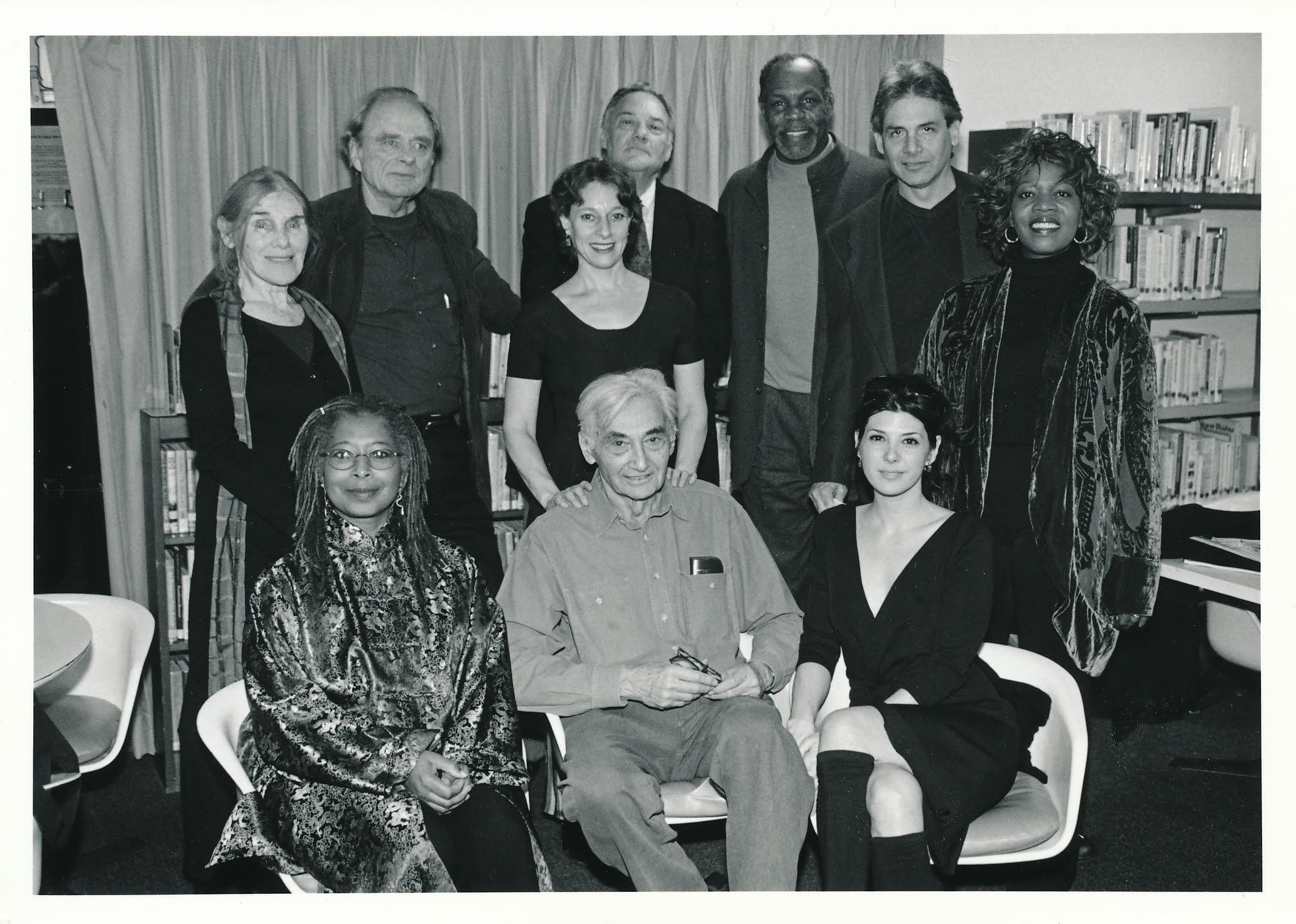Celebrating 20 Years of VOICES
Twenty years ago, on February 23, 2003, I helped organize the first performance of Voices of a People’s History of the United States at the 92nd Street Y in New York with Howard Zinn.
This photo shows Howard and Roslyn Zinn with the remarkable cast from that evening: Danny Glover, Myla Pitt, Marisa Tomei, Alice Walker, Alfre Woodard, Harris Yulin, and Jeff Zinn. Not pictured, alas, are André Gregory, James Earl Jones, Patti Smith, and Kurt Vonnegut, who also performed powerfully that night.
You can see video of the performance at Democracy Now! — which has regularly re-aired the program over the past two decades.
Audio and text from the program were first released as The People Speak: American Voices, Some Famous, Some Little Known. But the full realization of the vision Howard shared came with the book Voices of a People’s History of the United States — first published in 2004, revised in 2009, and published in a third edition in 2014, four years after Howard’s death in 2010 — and in the creation of the education, cultural and performance nonprofit organization of the same name.
The road to the first performance of Voices in New York twenty years ago began with the publication of Howard’s A People’s History of the United States in 1980.
Inspired by books such as Gerda Lerner’s Black Women in White America: A Documentary History (1972) and Richard Hofstadter and Michael Wallace’s American Violence: A Documentary History (1970), among others, Howard had long wanted to publish an anthology of primary sources he drew on in writing his book.
In 2002, Howard and I began to work on that project in earnest when he heard word from Harper Collins that the 1 millionth copy of A People’s History of the United States had been sold. (As remarkable as that was at the time, the number is now more than 4 million.)
Harper Collins suggested marking the occasion with a conference of historians reflecting on the significance of the book. But Howard had a much better idea: bring together actors, authors, and a musician to give voice to the words of people in U.S. history who powerfully spoke out against injustice.
We had some trepidation as we prepared for the event. We had assembled a stellar cast and knew the material was eloquent and moving, including the words of Frederick Douglass, Mother Jones, Emma Goldman, Helen Keller, Eugene V. Debs, Langston Hughes, Fannie Lou Hamer, and Malcolm X. But we also had no staging, just a podium, some chairs and microphones, and a music stand for Howard’s narration script.
But our fears were misplaced. The impact of the performance was electric. The audience was raucous. People were rapt, not only hearing those words as if they were being spoken for the first time but struck at how they resonated so clearly with the present, particularly against the backdrop of the U.S. war against Iraq and Afghanistan. And at the heart of the experience was the power of hearing those voices as an audience, collectively.
That night began a journey that has since led to hundreds of performances, including in Ireland, England, and Australia; a documentary film, The People Speak; a soundtrack album; numerous educational programs using these primary sources in people’s history; and a new book (coming this spring), Voices of a People’s History of the United States in the 21st Century: Documents of Hope and Resistance.
Howard understood the importance of theater, music, poetry, and creative expression. He knew the power of A People’s History of the United States was due not to his individual brilliance, brilliant though he was, but to the fact that he gave a stage to voices from our past that traditional textbooks and establishment culture have all too often silenced, marginalized, or blunted to coopt them.
That is an important lesson we should heed in this perilous moment when powerful political forces are once again aggressively trying to silence such voices, ban books, criminalize librarians and teachers, and stifle dissent.
In solidarity and gratitude for the past 20 years,
Anthony Arnove and the VOICES Team

